The COVID-19 pandemic has sparked an unprecedented surge in WFH, many working remotely where possible to slow the spread of the virus.
Although remote working was initially a temporary measure, with many now starting to see the benefits of this, and a roadmap to recovery in the works – what does the future hold for remote working?
TechRound explores a panel of company leaders and professionals, discussing their predictions on the future of “The Office” in a post-pandemic world.
Our Panel of Experts:
- Tamika Martin – Director and PR Consultant at Ucreate
- Jane Asscher – CEO of 23red
- Robert Winsloe – Managing Director at Arinite
- Simon Roderick – MD of Fram Search
- Tom Cheesewright – One of Britain’s Leading Futurists and Author of Future-Proof Your Business
- Paul Ainley – Managing Director at Chatter
- Dirk Anderson – CEO of BlakYaks
- Daniel Little – J Brand Director
- Ali Marsland – Director at Sorted Communications
- Anthony Groombridge – Director at Liquidline
- Nigel Davies – CEO and Founder of Digital Workplace Claromentis
- Chris Sainsbury – Founder and MD of digital agency UX Connections
- Tori Donnelly – Head of Social for WorkClub
- Ben Minter – SHUFL UK County Manager
- George Brasher – HP’s Managing Director of the UK&I
- Victoria McLean – CEO & Founder of City CV
- Justin Hamilton-Martin – Enreach for Service Providers
- Joanna Swash – Group CEO of Moneypenny
- Kristine Angeltvedt – CEO and Co-Founder of Nixa.io
- Marion Brydson – Workplace Designer, Interior Stories
- Eleanor Clapp – Research Coordinator at Sussex Innovation
- Stacey Karlsson – Managing Director of Goho
- George Theohari – Head of Content, Speak Media
- Cenk Sidar – CEO and Co Founder of GlobalWonks
- Alex Hirst – Hoxby CEO
- Nick Nooren – Head of Proteus Marketplace
- Nick Riesel – MD of FreeOfficeFinder
- Yvette Ankunda – Human Resources Generalist at Iterable
For any questions, comments or features, please contact us directly.

Tamika Martin, Director and PR Consultant at Ucreate

“Remote working has its benefits and detriments in different business areas, as well as personal life and while it limits some opportunities, it also opens doors for new working methods using modern technology.”
“Managing an agency which operates in multiple industries including Public Relations, Events and Talent Management, I found it quite difficult to adapt to working from home as it minimises the opportunities to communicate with my team and reduces overall awareness of what everyone is engaged in at certain times. Additionally, the restricted prospect to socialize has had an influence on me and my team’s creativity, as well as the ability to focus and perform.”
“On the other hand, it has provided me the chance to spend extra time with my family and be able to organize my day more efficiently between personal and business assignments.”
“However, remote working is not available for industries at large and for professionals who are not able to work behind a desk. Whether it is a privilege or not, it is up to the individual employee and company’s respective needs. In our case, working remotely has had a huge impact on our events management department, having to cancel events and turn down great prospects, but it provided us the opportunity to learn and adapt to the online environment.”
“Being the Director and leader at Ucreate PR and Events Management LTD, I have learned that some people find operating from home more opportunistic as it gives them flexibility, while others often discover themselves lacking motivation and not being able to separate personal life from work. My decision going forward is to offer my team the chance to work part-remotely when it is appropriate for the business, in order to create an advantageous environment for both personal and professional development.”
Jane Asscher, CEO of 23red

“Lockdown fatigue is a real problem, and that’s why companies need to be pro-active, especially when it comes to designing the working culture post-pandemic.”
“At 23red, we didn’t wait around. We realised our offices weren’t suitable anymore and so embraced ‘the new world’ and found a new workspace – a creative hub – that will enable a much more flexible approach, allowing teams to come together as and when the work requires it.”
“Involving the team to co-create new ways of working has also helped energise our staff, and we believe will improve collaboration and unlock creativity.”
Robert Winsloe – Managing Director at Arinite

“Since the Gartner study in March 2020, we’ve had a year of working from home and our analysts suspect that if they did the survey again, the number would be much higher than 5%. From our own figures, ranging from 5% to 50% planned reductions in office size, we predict the average company will move 20% of their staff to permanent remote working.”
“Several companies are planning to adopt working from home as a matter of policy and renting a space for team meetings. Arinite (as an SME) has been operating that way since its formation in 2011.”
“At the most extreme end of working transformations, there is an opportunity not just to reduce the cost of office space but to eliminate it completely, and then shift this cost to improving home working environments.”
“The larger SMEs (or large companies) could have permanent team collaboration space available for teams to book and use whenever needed. The smaller companies will just rent space on an ad hoc basis as and when they need it. And they will contract with companies like WeWork and Regus for those who need a desk when travelling in business away from home.”
“There are massive implications for the inevitable reduction in demand for office space. Initially this will result in dramatic reductions in office space costs. Eventually though, as the market reacts, a lot of office space will be converted to residential, demand and supply for office space will rebalance and the prices will start to rise again. While not definite, this process could take around 5 years.”
“This process will also change the demand for types of services in cities with an increased number of residential buildings, parking, public transportation, pedestrianisation and bike lanes etc.”
For any questions, comments or features, please contact us directly.

Simon Roderick – MD of Fram Search

“Change isn’t often as profound or as lasting as we think. We all swore off credit after the financial crisis, but there is more credit in the world than ever. It’s inevitable that working patterns will remain different for the remainder of 2021 with most firms favouring a hybrid model.”
“I feel from 2022 onwards we will see working patterns looking more like we were used to, but I think it would be hard for bosses now not to give colleagues more control over their diaries. So perhaps there will be more varied start and finish times, and some more WFH, but we feel most people will return to the office – we’ve all missed colleagues too much!”
Tom Cheesewright, One of Britain’s Leading Futurists and Author of Future-Proof Your Business
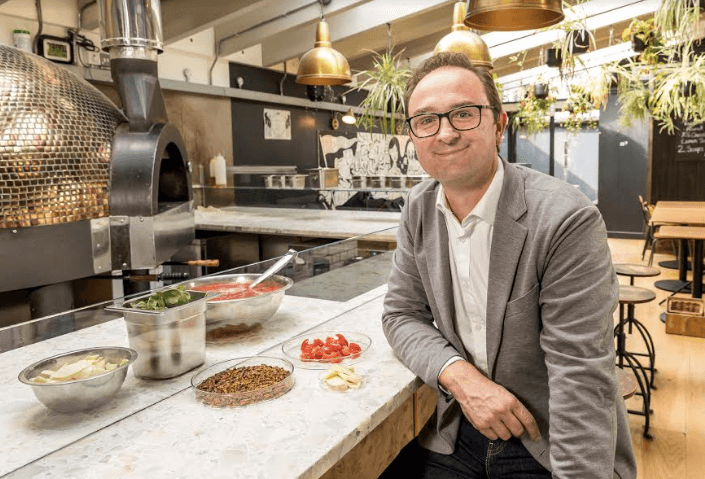
“It’s not so much ‘The Office’ but offices plural. With most companies converging on some form of ‘hybrid’ approach, people will be working in multiple places. What each of these looks like will depend on your industry, seniority, family situation, and wealth.”
“Speaking to property developers and landlords for a recent report on the future home for Hyperoptic and SAY Property, the discussion centred around four different work spaces:”
“The Transforming Bedroom – Lots of people don’t have the space to create a dedicated home office, particularly living in dense urban areas. So the second bedroom (or even the only bedroom) will have to transform easily into a workspace. This requires some interesting considerations: does it have good natural light? How is the ventilation? Is it well noise-insulated – for example, from neighbours or the washing machine? Lots of people now looking at fold-out desk arrangements.”
“The Zoom Nook – Build to rent properties have lots of shared spaces where people can work remotely, but you may want a little privacy in your own flat for video calls. Developers are looking at ‘nooks’ where you can get a little quiet and a nice background combined with a comfortable seat. It may not be a room but instead a space in a hallway in your flat.”
“The Suburban Shared Office – For those people who want a change of scene but don’t want to do the full commute, there is rising interest in suburban work hubs, somewhere between a serviced office and a coffee shop.”
“HQ – Offices aren’t going away. Lots of leaders are recognising the true challenge of long term remote of hybrid work now. How do you onboard and train new, inexperienced staff without the subtle and often undocumented learning from their more senior peers? How do you ensure that the office isn’t empty on a Monday and overcrowded on a Tuesday? How do you retrain middle managers for effective remote oversight without being intrusive? Remote work will rise but we will still have offices and they will be more populated than people think for some time yet.”
Paul Ainley, Managing Director at Chatter

“Offices will not disappear and nor should they. It’s a really big challenge to help develop a workplace culture or sense of community with no shared space to create a sense of belonging and to help people understand who you are.”
“Business space has to work hand in hand with the business’ culture. What problems does your business need to address and how could the environment your people work in help solve it? It’s a combination of form and function. Being clear and authentic about who you are, and what that means in terms of workspace, has never been more important.”
“In the future workspaces are going to be much more about giving people choices. Ideally, employees need to know there’s a range of places they can choose to work from as suits their role on the day. That may be desk space as part of a team, it might be breakout space, a quiet area or something less formal. It may be working from home. But dictating that people must work from home when no longer necessary may be as counterproductive as insisting they are based in the office 9-5.”
“The office is going to become a hub to provide things we can’t get working at home – community, socialising, personal and professional development and space for creativity and collaboration. It should become a space where people come to do a task they can do more successfully there than they can elsewhere. There are those roles which need to be in an office environment, for security or regulatory reasons, or to access specific equipment. There will also be those who find it very hard to work from home for various reasons. But I think we’ve all known for quite some time that actually not everyone needs to be in the office all the time.”
Dirk Anderson, CEO of BlakYaks

“I have spent over a year now working from home and that has meant working with and listening to hundreds of my colleagues, customers and associates who are in the exact same boat. I have spoken to property and facilities teams over that same period, and I have drawn some conclusions and formed opinions about remote working and the future of work after the restrictions lift. Here are some key ones below. They are general points rather than representing the views of everyone:”
- “People enjoyed the novelty of staying at home and not commuting. For many the novelty wore off, especially when the UK winter set in.
- People need people and while the technologies that aid working from home have been very positive, it’s just not the same as real human interaction. In fact, I would say that sustained isolation and being away from colleagues permanently, could have a detrimental impact on mental health for some and must be addressed.
- Most people would rather reduce their commuting hours longer term and are looking for employers to provide better work-life balance in this regard.
- A post-covid office that is being re-designed should move away from rows and rows of desks. Instead providing banks of docking-stations with good access to screens so people can put their headphones on and concentrate on certain work packets. But a large proportion of any office should be given over to high quality collaborative space including break-out tables, white boards, light-boards, coffee areas, soft-furnished areas along with private meeting spaces.
- I think the relationships between business partners and customers / suppliers will be much more open to mirroring how each business works internally. Providing services and partnering remotely or the office will both be acceptable and will be shaped around what you are working on collectively rather than just proximity. “
“I, like many others look forward to getting back to something closer to the old norm but striking a healthier balance that is sensitive to commuting and personal time.”
For any questions, comments or features, please contact us directly.

Daniel Little, J Brand Director

“COVID-19 and the disruptions it’s caused have turned every aspect of our lives on its head. Office life has not escaped that and like with so much, companies and employees have had to adapt.”
“Having a stable and robust network infrastructure has never been more important with so many working from home. J Brand have been able to help companies, large and small, with hardware rollouts and network upgrades to make the process as seamless as possible.”
“As we move forward, hopefully out of the pandemic for good, it’s clear that some changes will remain with us. Like with anything, a balance is required. If we can cut down on commuting times and give workers more time with their families, then that has to be a positive development. A mix of working from both home and the office is expected. It would benefit the environment, reduce traffic, reduce pressure on public transport, and improve people’s mental health and general morale. On the other hand, people need people and a zoom call is no substitute for an in person meeting.”
“Throughout the pandemic we have been installing and assisting with ‘back to work’ solutions across the country. Certainly in the short to medium term new technologies will continue to be used and realistically ‘the office’ will change for good.”
“Companies will find a way to survive and thrive as we enter this new phase of the pandemic, and ways to work more hygienically and safely beyond it. Through embracing technology and showing pragmatism and flexibility, a company’s success can continue but the office may look very different.”
“Personally, I am looking forward to planning my working weeks with choice, from working at home, going into the office or to meetings and events – all based on what is best for the individual, the business, our employees and our customers.”
Ali Marsland, Director at Sorted Communications

“At Sorted Communications we’ve worked remotely since inception in 2013. We’re a communications agency that works as a flexible extra pair of hands for in-house communications and marketing teams. We work predominantly within the public sector, particularly with the NHS, and with charities and the wider health industry. The nature of the service we offer lends itself very well to remote working; it’s more conducive to flexibility; we aren’t tied to any particular location, so can work with clients all over the country.”
“During COVID, video calls have become the primary method of communication for many companies and I think this change will largely endure. When people first started using video calls last year, it was something of a relief for us. In the past, potential clients would often suggest in-person meetings, but I would always ask for a phone call first. Very often, a call enables us to cover everything, without the need for physical meetings. Now that video calls have become much more mainstream many more people see the value of using them to avoid the time and financial cost of travel, and I think they will continue to be used much more widely than they were pre-COVID.”
“As we emerge from COVID-19, the future of work is unclear. Although working entirely remotely isn’t feasible for everyone, I’ve found that there are elements of working life which can (often more efficiently) be executed remotely.”
For any questions, comments or features, please contact us directly.

Anthony Groombridge, Director at Liquidline

“Liquidline is a leading supplier of commercial coffee machines and water dispensers for offices and workplaces throughout the UK. We also work closely with commercial property developers and property managers to create exciting and innovative workplaces.”
“With many of their customers beginning to return to work, we have launched a range of touchless coffee machines and water dispensers that use smartphone apps, QR codes and infrared technology to dispense drinks totally hands free. Reducing common touchpoint and improving safety and hygiene within the workplace.”
“We’ve also noticed that buying habits are changing, with customers veering away from purchasing a single, top of the range commercial coffee machine and instead opting to invest in two or three mid-range machines. These are then spread around the office creating several refreshment hubs, which encourage individuals to stay within their teams rather than crossing paths with the whole office.”
“Many of our clients have recognised the benefits of home working in terms of improved wellbeing and productivity. However, not all tasks can be completed efficiently from home, so there will always be a place for the office.”
“The overall footprint of the workplace may decrease, but it will become a hub for collaborative working, with employees coming in 1-2 days a week and working in more relaxed spaces with hot desks, open plan seating areas and inclusive meeting rooms, with a focus on creativity.”
“Wellbeing initiatives will become essential, rather than “nice to have” with more offices offering free fruit and healthy snacks, better quality coffee and filtered water, as well as schemes focusing on mental health and exercise.”
Nigel Davies, CEO and Founder of Digital Workplace Claromentis

“If it was up to employees, the future workplace would be a hybrid one, where people are free to work from home or drop into the office as they like.”
“We did a survey of 1,000 UK knowledge workers who have been working from home for at least four months during the pandemic, and a clear majority – 73% – are in favour of a ‘best of both’ arrangement after the threat of the pandemic subsides. Of these, the ideal work week split would be 64% from home and 36% from the office.”
“Contrast that to only 7% who want to go back to full-time office work and the idea that we could ever ‘return to normal’ seems unlikely, unless leaders refuse to consider employee requests in their planning.”
“It looks as though the threat of the virus will be with us for years, not months, and anxieties over health and safety will last even longer than that, so making demands that employees commute to the office work five days a week would be a very unpopular move, and one that would likely compromise recruitment and staff retention.”
“It would be sensible for companies to look at how best to support a flexible workforce. The post-COVID workplace will require agility, curiosity and creativity to build a truly brilliant virtual workplace that supports teams from wherever they work. Leaders will also need to adapt their skills to get the best out of fragmented teams, by mentoring from afar.”
Chris Sainsbury, Founder and MD of digital agency UX Connections
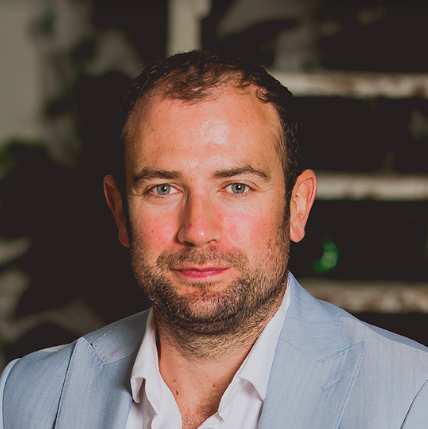
“There’s no doubt that the image of a standard 9-5 has changed beyond all recognition for the majority of workers since this time last year. Our own MO at UX Connections, where our people work from our clients’ offices to enable the best possible opportunities for collaboration and immersion in the client’s culture, has had to adapt as we have all spent more time at home. We are keen to return to at least some of our previous way of working when, and if we can, but we decided to ‘test the water’ with the team a few months back and undertook a staff survey to ask how they were feeling about it. We found that everyone – 100% of the team – would be happy to return to clients’ offices for 2-3 days per week and 64% said that they’d be keen to use a shared office space for 2-3 days per week. No doubt our working patterns from mid 2021 will reflect this, as far as they possibly can.”
“We hope that clients will continue to accommodate us once things feel more ‘normal’, but appreciate there might continue to be less of the in-office scenarios available, and yet more video conferencing calls to make.”
More from Interviews
- Meet Roman Eloshvili, Founder of ComplyControl
- Inside Mobile Payments with Bojoko’s Ville Saari
- Meet Steve Haskew, Group Director of Sustainability and Growth At Circular Computing
- A Chat with Hakob Astabatsyan, CEO and Co-Founder of Synthflow AI
- Meet Ernesto Suarez, CEO at Travel Insurance Provider: Gigasure
- Under Pressure and On the Clock: Gurhan Kiziloz’s Nexus International to Hit $1.45B Revenue in 2025
- Daisy Ip of InvestHK: Why Hong Kong Continues To Grow In Popularity Amongst UK Fintech Startups
- A Chat with AJ Balance, Chief Product Officer at Grindr
Tori Donnelly, Head of Social for WorkClub

“2021 will prove to be a pivotal moment for flexible work, with the future of work being built around businesses that enable a true flexibility, work-life balance and the re-connecting and support of local communities.”
“Slack’s Future Forum research of 4,700 employees found that only 12% want to return to full-time office work. Meanwhile, 72% are looking forward to a hybrid mix of home, office, and 3rd places moving forward.”
“We expect to see businesses utilizing technology to empower workers wherever they are, streamlining collaboration between in-office and remote workers, building a truly seamless transition into the new office environment. At WorkClub, we’re building out our team globally and our CEO Nick continues to say that we should work where we work best, be that home, a dedicated workspace or both.”
“Many businesses that need to increase employee productivity and happiness are turning to ‘third spaces’. This type of environment has the potential to create a magnetic space — increasing the attractiveness of the workplace and heightening overall employee engagement levels.”
“The environment in which employees work is generally a ‘high-priority item when deciding to join or stay within a company. A dull or uninviting environment can create low-motivation and low-energy and ultimately, undermine productivity.”
“According to an article in Medium, 98% of respondents said that ‘anywhere working’ has a positive impact on productivity.”
Ben Minter, SHUFL UK County Manager
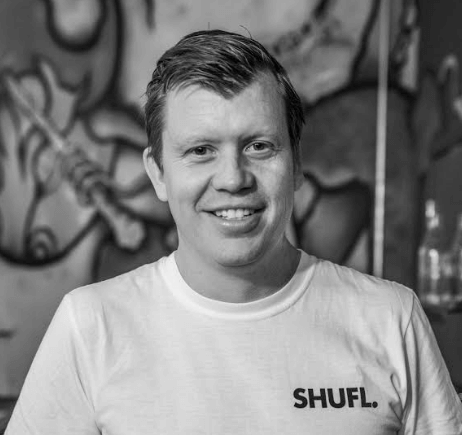
“Covid-19 has changed the way we work forever. The new normal is going to see many of us taking a hybrid approach to remote and office-based working, which means workspaces will have to evolve to facilitate the kind of interactions that can’t happen remotely.”
“Companies asking their employees to work from home most or all of the time will fuel demand for business hubs offering a mix of spaces for co-working, events, meetings and socialising. This kind of hub will alleviate the isolation of working from home all the time and allow people to retain that valuable social interaction.”
“There’s a great example of this at a new Oslo venue that we’re supplying our shuffleboard tables to. Telegrafen is a ground-breaking new venue combining leisure, social and business that feels like the future of working. It’s one step on from the existing city-centre co-working spaces and embraces a new way of working and networking, offering a premium environment where you can eat, drink, play AND work with meeting rooms, event spaces, themed bars and restaurants.”
“The other scenario is those businesses looking to support their employees’ return to the office after months of working from home, who are looking to re-evaluate their set-up. We already supply shuffleboards to offices in Europe and there are lots of reasons why companies choose to do this. It might be that they want to provide a truly creative, playful space for meetings and brainstorms to boost productivity; to make it part of an employee wellbeing package, encouraging people to take a break from their desks; or just add a fun, informal element to the workplace to bring colleagues together.”
“We see this as being a growth area as employers look to focus on employee wellbeing and help their teams adjust to the new normal.”
George Brasher, HP’s Managing Director of the UK&I

“Before we envisage what the future of the office is, we need to understand how employees feel about remote working and its future. The HP Workforce Evolution Study – a survey of over 6,000 office workers around the world – revealed that out of all European markets, UK employees were the most reluctant to get back to the traditional office. Therefore, it’s not about bringing our workforce back to the office, it’s about understanding the experience of employees has fundamentally changed, and that the desire for a hybrid world of work is accelerating.”
“In terms of what this looks like, we can expect a hybrid world of work to continue with the freedom to be flexible as the most important factor. With 43% of office workers motivated to perform well by flexible working and 33% motivated by training opportunities, the future office should be agile enough to acknowledge and act on the shifting attitudes. Facilitated by high-spec and fluid technologies, employees want to know they can grow and evolve at work and at any point in their career, be it remotely or in the office, and that their employers will empower them to do so.”
For any questions, comments or features, please contact us directly.

Victoria McLean, CEO & Founder of City CV

“After a year of being told to ‘work from home if possible’, for some, the WFH experiment has been awesome. Freed from the daily commute, we’ve had more time for family, exercise, side hustles and sleep.”
“According to many experts, productivity levels have increased. But some workers have struggled to juggle work and home life – lack of suitable work space, Zoom fatigue and social isolation are very real issues for many. In addition, some employers have concerns around creative collaboration, mentoring and developing new talent if everyone’s WFH.”
“For those reasons, I believe the future of remote work is hybrid. The hybrid model involves trusting people to plan their own work day and enabling everyone to split time between home, office, local hub or co-working space. Presenteeism is out the window but it’s also not about everyone being forced to work from home full time; it’s Work From Anywhere (WFA) or work from wherever is most productive for the task at hand.”
“The big benefit of hybrid working is that it allows people to be hyper-productive when they’re working wherever they find it easiest to focus on work. But it also gives opportunities for teams to physically come together.”
“The hybrid model also massively expands your potential talent pool and puts employee wellbeing at the centre of your company culture. In the tech world, where start-ups are competing with each other (and established corporates), to attract and retain exceptional people, having a great culture is a big differentiator.”
“There are challenges in making hybrid working a reality. It takes a lot of planning and coordination and you have to get the recruitment, onboarding and career development right. I think we’ll see a new job title as we emerge from this pandemic – ‘Head of Hybrid Working’.”
Justin Hamilton-Martin, Enreach for Service Providers

“Last year, many businesses rapidly proved flexible working was possible, achieved through a blend of collaboration and communication technologies: from having a reliable network connection through to access to applications. Now they are building on those successes and beyond the quick fixes many adopted in 2020, they are laying foundations for more efficient and flexible working, whether at home, in the office or elsewhere.”
“This has led to a huge rise in the adoption of unified communications (UC), especially Unified Communications as a Service (UCaaS). UC brings together disparate telecom and IT tools and services into one environment. UCaaS takes that one step further by enabling UC to exist in the cloud, providing a seamlessly consistent user experience regardless of place, network, app or device.”
“In this more fluid environment, communications revolve around the user, according to his or her current status, rather than being dictated by technology. For instance, an audio or video meeting can be initiated from a choice of paths on a laptop and then switched to a mobile (without other meeting participants being disturbed).”
“If a mobile SIM is part of the UCaaS platform, it can separate different personas (personal and work), regardless of location, helping users to maintain a better work-life balance. Likewise, presence is a UCaaS feature that helps people set their reachability, but without negatively impacting business performance. For example, when unavailable, calls can be automatically rerouted to colleagues. Presence also gives remote managers visibility of the team’s status which has become critical to maintain service levels.”
“Beyond what is available right now, expect to see continuing innovations around AI to deliver a more intuitive and relevant remote experiences. The modern workplace is evolving fast, underpinned by smarter, more people-centric communication and collaboration technology.”
Joanna Swash, Group CEO of Moneypenny

“The current pandemic has us questioning the future of the office. We’ve adapted well to remote working, but we do miss that all-important human interaction; that spark, that connection, real conversations and the bonds that are impossible to form remotely, no matter how much video-calling is involved.”
“Technology has made remote working possible and those that have embraced it have thrived. But there will always be a place for the office. Offices provide a physical designated space in which to work and be creative and the list goes on.”
“As adults we spend over half our lives at the office so making work a place your staff actually want to go is a no-brainer. But it is about more than just fun it is about culture. Offices should be inspiring places to work. Not only equipped with the correct tech and furniture but designed for creativity, fun, collaboration, and teamwork.”
“To do this you need to create a safe, welcoming place in which to work. Think of it as a second home, a blurring of the lines in office and home design, comfortable snug breakout areas, coffee tables that wouldn’t be out of place at home.”
“That means using the space creatively, offering flexibility for future growth and multi-functionality (the future for business is all about agility), rethinking office layouts with social distancing in mind and reviewing your ventilation and cleaning procedures. But in creating an environment where people want to work, you can also attract new like-minded people alongside retaining those you already have.”
“As people look to return to work, all of this is ever more important in enticing them back from their working from home stations. And technology will play a central role in the new look reception areas, for example, at Moneypenny we have joined forces with visitor management system Vpod to offer dedicated video front-of-house and concierge support for the first time to help companies embrace visitor management systems which provide human contact without the interactions.”
“Whilst technology has been crucial to maintaining relationships, it has not replaced the need for the office. They may look a little different but they are the hub where employees are able to connect, debate, collaborate and develop. A space which makes them feel part of something and maybe, after all of this we will appreciate the office just that little bit more.”
For any questions, comments or features, please contact us directly.

Kristine Angeltvedt, CEO and Co-Founder of Nixa.io

“The idea of the office and what it stands for have changed, and I see this continuing after the pandemic. It will become a central hub where people meet to collaborate on projects, discuss ideas, be social, and a space for people who can’t work from home. The office is still an essential part for many companies, and I don’t see the space itself disappearing. Rather how the space is used will change.”
“Employers will need to balance between home working and a space that reflects employees’ usage of it. Companies have been reviewing how to use their offices throughout the pandemic and many are optimising and consolidating their spaces. While these do vary by sector, it’s clear that Covid-19 has changed the way we work and will work in the future.”
“Employers should not expect that all employees would like to return to the office. Employers are now responsible for mapping out what kind of working environment that the individual needs in order to perform at their best and be happy. It is the employers responsibility to ensure that, and rather enable a flexible/combined model instead of forcing people back.”
“Use the office space to encourage company culture, protect health and wellbeing of employees and provide all the tools and infrastructure they need to do their jobs. As the office requirements change, the space itself will transform, with designers creating offices for a more mobile workforce.”
Marion Brydson, Workplace Designer, Interior Stories

“I’m a workplace designer. For obvious reasons, I’ve spent much of the last year twiddling my thumbs. Pre-pandemic, however, I was busier than ever and, over the last 20 years, I’ve watched – and influenced – the way our workspaces have evolved.”
“Tech has always impacted how we work – it’s made it easier to work in the office, to work remotely and to connect and communicate with colleagues, buyers, peers and stakeholders all over the world. Never has that been truer or more obvious than right now as most of us ‘celebrate’ our one-year work from home anniversary.”
“Tech companies have also hugely influenced the evolution of the office space. Google is a great example – its office design concept actively encouraged workers to stay in the office, providing a home from home interior with activity-based furniture, a move away from assigned desks, the introduction of nice coffee and a Friday afternoon free bar.”
“And then came the pandemic, which has quite spectacularly thrown the cat among the pigeons. Thousands upon thousands of offices now lie empty as we have all been forced to stay at home and work from home, and workplace designers have been forced to ask, what will become of workspaces now?”
“Pre-pandemic, I was often hugely conflicted when designing workspaces – it’s a fine art balancing ROI for the client and the comfort of the employees who would end up spending a third of the working week in my spaces. As a designer, I’m required to provide a minimum of 11 cubic metres per employee. For years, I mastered the art of taking out cellular offices and minimising desk sizes so that I could both deliver on the minimum space requirements for workers and simultaneously maximising the office footprint, largely to reduce property portfolio costs.”
“Now, though, social distancing has thrown up serious questions about minimum space requirements and designers are expecting new guidelines from building standards to address this, as the wellbeing, comfort of office workers, their safety and use of materials, all have to be re-prioritised.”
“I suppose the million-dollar question is, has Covid driven the final nail in the coffin for the Google office concept and the way workspaces were heading? In my opinion, yes, to a large degree it has. Some businesses (Reach plc, which owns The Mirror newspaper, for example) have already confirmed workers will be required to work from home permanently, others will venture into a hybrid model, and the rest will return to being totally office-based. This also mirrors what employees want. Some are desperate to get back to the office, others are desperate to stay at home, and the majority that lie in the middle seem to want a compromise between the two extremes.”
“Location will also play a big role in determining the future shape of offices –how safe is it for workers to commute to the office, for example? For this reason, I envisage some companies ditching the big city HQ for a smaller hot desking solution, and engaging with supplementary out of town hubs (We Work type co-working facilities, for example) along with better cycling and shower facilities within the office, so that workers have the benefits of a home/office work balance. How individual companies value the need for inter-employee collaboration, learning from one’s peers and incidental information gathering from co-workers will also impact the decision.”
“But one thing’s for certain, employee wellbeing, comfort, safety, duty and care have never been higher on the agenda for management, and this will undoubtedly be reflected in the next evolution of the workspace.”
Eleanor Clapp, Research Coordinator at Sussex Innovation
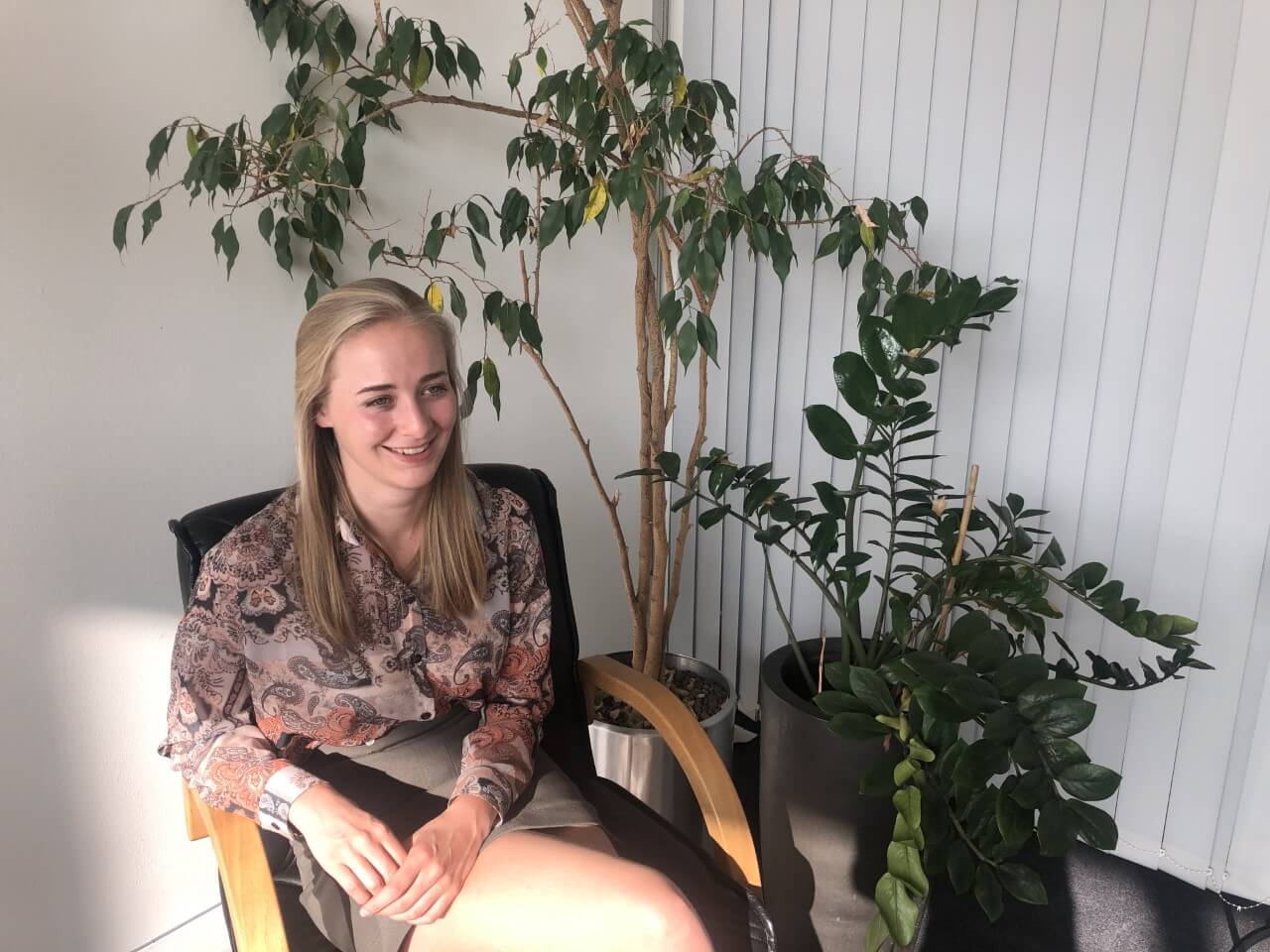
“There can be no doubt that flexible working patterns and working from home are here to stay. The shape and form it takes will depend on each organisation and its needs, but employees have discovered during the pandemic that it’s totally possible, socially acceptable and fundamentally changes how they work – sometimes for the better.”
“The lockdowns of 2020 and 2021 have been an impetus for organisations like ours, which provide workspace as part of their offering, to reflect on the true value we can offer. It’s something we have considered deeply, ultimately publishing our insights in a white paper last month. Offices are still going to be hugely important because they facilitate a strong workplace culture, collaborative work and business relationships, but we should stop thinking of ‘the office’ and ‘work’ as interchangeable terms.”
“Instead, we expect to see more hybrid spaces, truly mixed-use environments that blend creative meeting space, great virtual tech and AV facilities, and quiet zones for focused ‘deep work’. We may very well see the parts of the office that used to be thought of as ‘extras’ – big conference rooms, lounge spaces, cafes and restaurants, outdoor space – become the heart of the new workspace.”
For any questions, comments or features, please contact us directly.

Stacey Karlsson,Managing Director of Goho
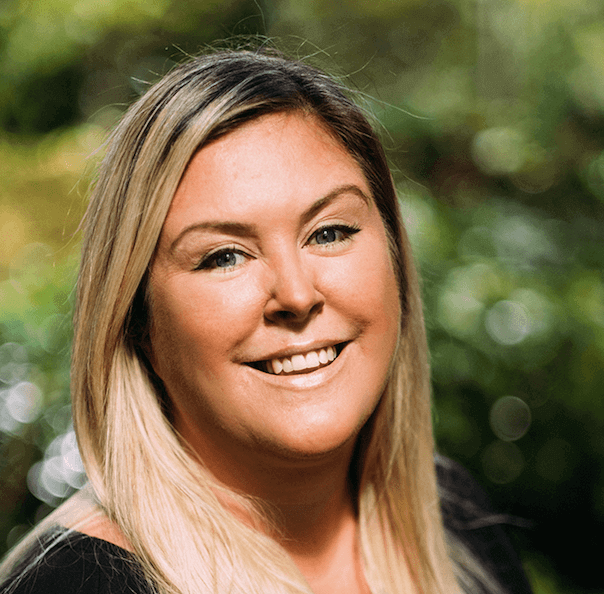
“Our office will look pretty much the same after Covid. Being a start up we never invested in large or fixed offices.”
“We have a shared office space in Shoreditch which has been closed throughout lockdown (Its reopening in June), but even before that, we only used it twice a week and the other days we worked remotely. This meant we were already set up and fully functional with remote working and cloud software etc. Google Meet and Google docs was already well embedded in our organisation, and I always knew who was coming to the office on what day.”
“To cut a long story short, I think that post Covid everything will be exactly the same for us, we might just do one day a week in the office rather than two, and my team will have to formally ‘book in’ the day they come, but that’s always been the case for us anyway.”
George Theohari, Head of Content, Speak Media

“For Speak Media, the last year has made us reflect on the importance of our core values of collaboration and support. During lockdown we have worked hard to adapt how we live those values – having transitioned very rapidly during the first lockdown from fully office-based to a completely remote operation.”
“For instance, I have been acutely aware that younger team members’ experience of the pandemic may have been much more negative than the leaders in the business. People in their twenties are more likely to live alone in small apartments, cut off from friends and family for long periods – we have a duty of care to them as an employer in terms of their emotional and mental wellbeing.”
“That is why it has been a huge priority for Speak Media to simply keep employees talking, while trying not to overburden anyone with additional ‘face time’. We’ve held short, focused virtual meetings and impromptu breakout sessions. We’ve taken our weekly tradition of 5pm Friday beers online, providing us all a chance to catch up in relaxed circumstances.”
“We’ve renewed our company purpose as a team, and established a new ‘collaboration manifesto’ fit for remote working. We’ve also hired a workplace coach to help staff talk adapt to some of the changes required by our new ways of working and communicating – ensuring that we can commit to our core values and maintain our togetherness even when we are all physically miles apart.”
“And that commitment extends to our future plans. Having ended our lease at our London office last year, we are pressing ahead with a hybrid plan for working arrangements. We plan to rent space in a coworking facility so staff can gather there for team get-togethers and crucial client meetings—or simply to provide that all-important change of scene.”
“The point is to give people the freedom and flexibility to work where they’re most likely to thrive, taking into account individual circumstances and personality types. If we can provide support and options then I believe our team – and by extension our business – will continue to thrive.”
Cenk Sidar, CEO and Co Founder of GlobalWonks

“COVID-19 has taught us to adjust to a new normal that has forced most of us to grow and modify the way we live our lives on a daily basis. Whether it was by choice or not, we all had to shift from working in a bustling office environment where all those around us focused on similar priorities and strived for the same goal. Then came a rather sudden shift. Many of these individuals abruptly found themselves in a small, isolated home office, accompanied by family members who were not necessarily on the same page as them, like those in the office environment.”
“At GlobalWonks, we have been encouraging digital transformation in the knowledge industry since founding the company in 2018, and COVID-19 has further reinforced our belief that the future of work will be digital and remote. As we navigate through the novelties of globalisation and the expansion of emerging markets, it becomes clear that more connectivity and easy, direct access to high-quality, localised knowledge will become a necessity for expanding businesses. This is only possible through a novel workforce structure relying on networks of freelance workers who are both globally mobile but localised in their unique, geography-specific knowledge.”
“As proven by the recent boom in the gig economy, knowledge workers are increasingly demanding freelance income and flexible work hours. For these experts, having access to a platform like GlobalWonks provides an invaluable opportunity to build their brand and reputation, all while at home, on their own time, and most importantly, at their own rate — the vision that our new “office” is based on. Meanwhile, our core team at GlobalWonks is increasingly hybrid, digitalised and international with teams operating across 7 different time zones, allowing us to operate in real time, with maximum speed. This is the thesis that we built GlobalWonks on and it has been validated by the new digital wave that COVID-19 has brought, but will continue to grow and bring new patterns to the way we work.”
For any questions, comments or features, please contact us directly.

Alex Hirst, Hoxby CEO
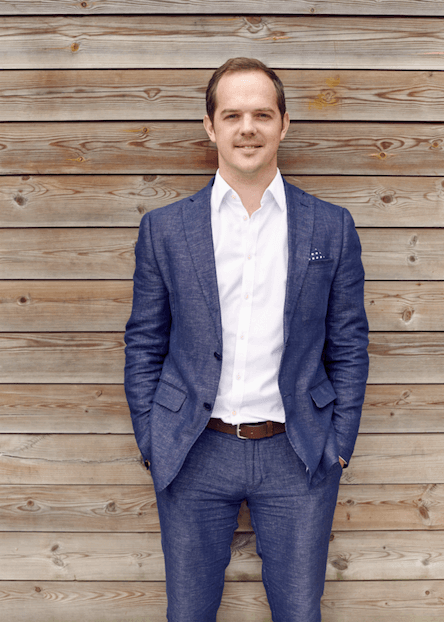
“Hoxby is a global agency that has always worked entirely remotely. We believe that remote working is better for society, better for the environment, better for business and better for people. Hoxbies not only choose where they work, but also the hours they prefer. We call this ‘workstyle’ and it is integral to shaping a happier and more fulfilled world of work without bias.”
“Throughout the pandemic, Hoxby has provided best practice advice and support to businesses and individuals new to remote working, and through this global experiment we’ve seen what we at Hoxby take for granted: if executed correctly, a huge amount of work can be done remotely, and it improves the wellbeing, productivity and motivation of one’s workforce.”
“This year of lockdown has taught everyone to think differently about the way we work, to question whether we really need to be in an office from 9-5 any more. The challenges of working remotely during a pandemic have been numerous, but few seem insurmountable.”
“As we see it, The future of work is about choice. It should be up to individuals to choose what works for them. However, we must be careful we don’t conflate working from home in lockdown in a pandemic with the ability to choose where and when we work remotely in the future.”
“In order to truly embrace workstyle, a business must – as we do – decorprify their thinking and adopt an asynchronous method of working, enabling teams to collaborate without the need for digital presenteeism. The technology to enable this is there and has been developing rapidly. Having a super-agile tech stack allows teams to find ways that work for them rather than being stuck with the limitations of Microsoft Teams or Webex.”
“Furthermore, having a strong, clear, authentic organisational purpose has become even more important in a remote context – something that aligns teams and gives a reason for people to come together. Authenticity and transparency are critical for leaders to embrace – rather than virtual backgrounds and corporate-speak – we need to allow others to see who we really are, kids, pets, messy rooms and all, and to check in with each other on a personal level more frequently.”
“As we look to the future with a more open mind, it is possible that we might just be able to skip forward a generation in our adoption of more inclusive work.”
Nick Nooren, Head of Proteus Marketplace

“I believe strategies will pivot towards remote working enablement. As people are social creatures with a natural sense of belonging, the need for a physical office environment remains strong. Hybrid office working will be more common without the mandatory demand to be physically present every working day. Long and arduous commutes into work every day will be a thing of the past. This rise of choice and autonomy will create a fruitful and productive workplace benefiting both employees and employers.”
“We cannot forget that teamwork is imperative to supporting the success of a company however, working from home or remotely can encourage greater productivity, less distraction from small talk in the office and flexibility in how time is spent. Remote work has become ingrained into our routines, and leadership teams should capitalise on these benefits.”
“Horizontal collaboration will no longer be a mere trend. We will see a fundamental shift from supervising to mentoring across the board. Training and development will be paramount for all staff, regardless if they are employees or gig workers. Over the past year, many of us underwent personal development and a re-evaluation of our goals. Embracing and driving these goals in the hybrid office will enhance both the individual and team collaboratively.”
“We have seen countless conversations about years of digital progression squeezed into months. The new office of tomorrow will see more companies modernise legacy-driven systems and fully embrace digital transformation to the cloud. Peer reviews and supervisor check-ins will be hyper-personalised through the likes of AI and automation. Businesses will no longer be buried under a mountain of forms. Great work automation tools are available to assist in operational planning and execution so people can stay digitally connected. The future office will maximise digital transformation to drive decision making and improve the quality of output from hybrid teams.”
Nick Riesel, MD of FreeOfficeFinder

“I believe the future of working is very much going to fall into the hybrid category for a large percentage of jobs. We are starting to see people waver – caught between working from home and the office. It’s like employees almost feel a bit undecided by the whole work from home situation.”
“On one hand, people enjoy the convenience and cost-saving aspect of working from home. On the other, those same people are getting sick of seeing the same four walls all day. They also miss interaction with colleagues while their employers miss the face-to-face management, monitoring and the ability to train/develop new and existing employees. This all points to roles which will consist of week that involves days in the office and other days at home. The split of each category will very much depend on the role and what is realistic in terms of output from the people running the business.”
“The office itself will become smaller. Less desks will be needed and I believe companies will move from long term rentals of five to ten years to a shorter, more flexible solution that will allow them to see how the new work set-ups will pan out. That initial investment into an office of fit out and buying their own furniture will also probably go. Instead, it will be about finding a base where staff can go in and out as they please which has everything there for them while the rental terms for the office are flexible, providing the ability to either change office size or leave if needed. I also predict many companies dropping formal clothing such as suits, shoes and ties, allowing staff to dress more casually, which is what people have become used to over the last year.”
Yvette Ankunda, Human Resources Generalist at Iterable

“Coronavirus has not eliminated the office. Instead, it forced a much needed change in perspective – away from the stagnant and traditional and towards the evolved and progressive.”
“For the fastest-growing companies, tapping into talent from anywhere has become more important than having all teams in one place. The traditional understanding – that dense labour markets are needed to fuel innovation – has been largely debunked, replaced by a creative class of employees that are able to live anywhere. There is a deeply symbiotic relationship between talent and accessibility as well; with more companies open to the remote work option, the talent pool has become quite dynamic and diverse. And as we know, a more diverse and inclusive workforce enables innovation and powers growth and productivity!”
“The power behind every enterprise is its people, which is why businesses need to continue iterating on process and procedure; a consistent feedback loop will help to identify and mitigate pain points. Recognising the vastly different circumstances between our employees working remotely in early 2020, we provide employees with a free subscription to our customer Calm, a mindfulness and meditation app, a corporate membership with ClassPass, and a monthly Fitness Stipend to support mental, physical and emotional health. Aligned with one of our core company values – growth mindset – we provide a Learning and Development Allowance on a quarterly basis to encourage and support the continued professional and personal growth of our employee base.”
“As the pandemic has made clear, businesses must do all that they can to support their greatest asset – their people. Whether through more flexible working conditions or empathetic communications, organisations need to be ambitious and build a way of working that works for everyone. The office of the future will be a hybrid of office and home working, dictated by employees personal preferences.”
For any questions, comments or features, please contact us directly.




